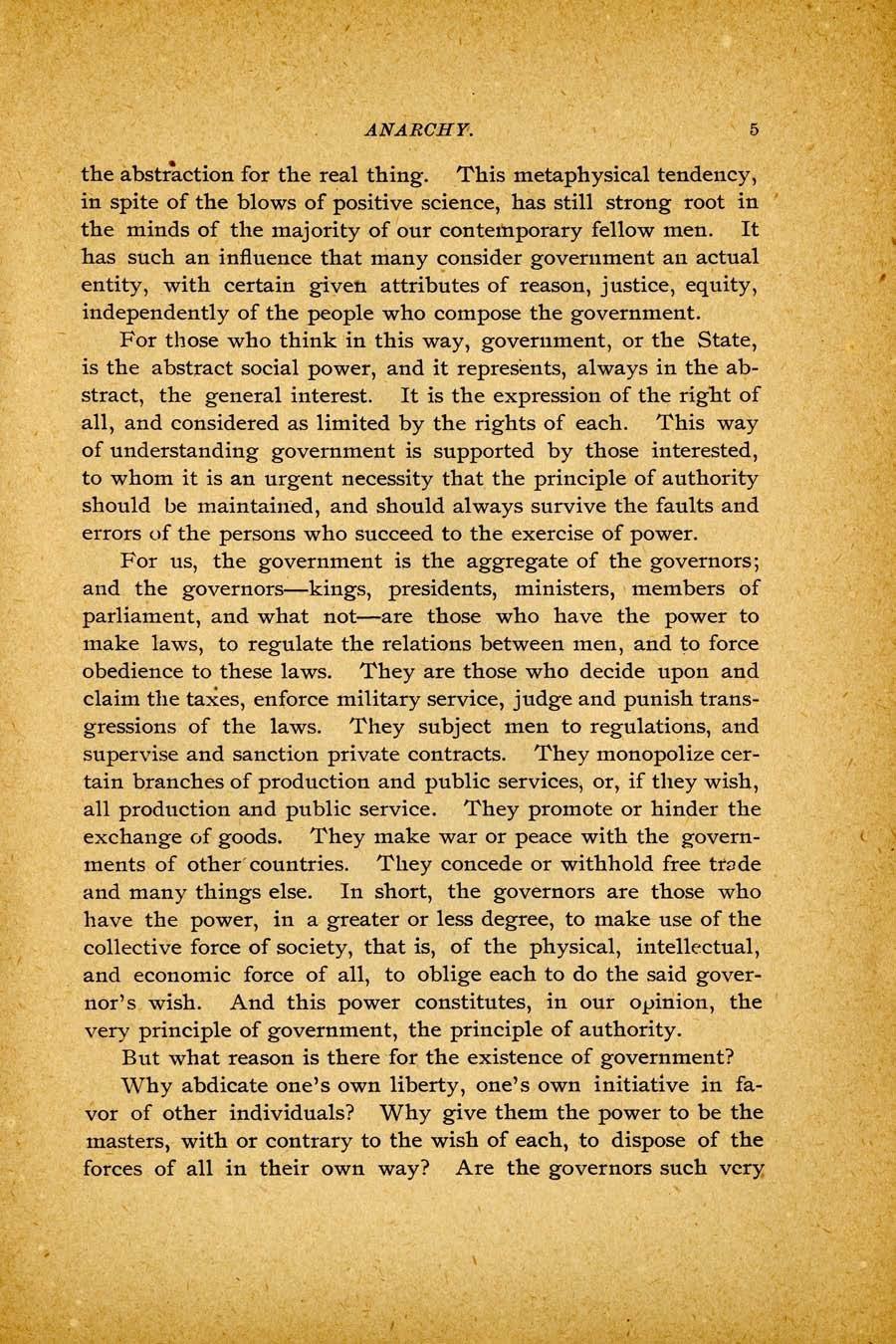the abstraction for the real thing. This metaphysical tendency, in spite of the blows of positive science, has still strong root in the minds of the majority of our contemporary fellow men. It has such an influence that many consider government an actual entity, with certain given attributes of reason, justice, equity, independently of the people who compose the government.
For those who think in this way, government, or the State, is the abstract social power, and it represents, always in the abstract, the general interest. It is the expression of the right of all, and considered as limited by the rights of each. This way of understanding government is supported by those interested, to whom it is an urgent necessity that, the principle of authority should be maintain-ed, and should always survive the faults and errors of the persons who succeed to the exercise of power.
For us, the government is the aggregate of the governors; and the governors—kings, presidents, ministers, members of parliament, and what not—are those who have the power to make laws, to regulate the relations between men, and to force obedience to these laws. They are those who decide upon and claim the taxes, enforce military service, judge and punish transgressions of the laws. They subject men to regulations, and supervise and sanction private contracts. They monopolize certain branches of production and public services, or, if they wish, all production and public service. They promote or hinder the exchange of goods. They make war or peace with the governments of other' countries. They concede or withhold free trade and many things else. In short, the governors are those who have the power, in a greater or less degree, to make use of the collective force of society, that is, of the physical, intellectual, and economic force of all, to oblige each to do the said governor's wish. And this power constitutes, in our opinion, the very principle of government, the principle of authority.
But what reason is there for the existence of government?
Why abdicate one's own liberty, one's own initiative in favor of other individuals? Why give them the power to be the masters, with or contrary to the wish of each, .to dispose of the forces of all in their own way? Are the governors such very
